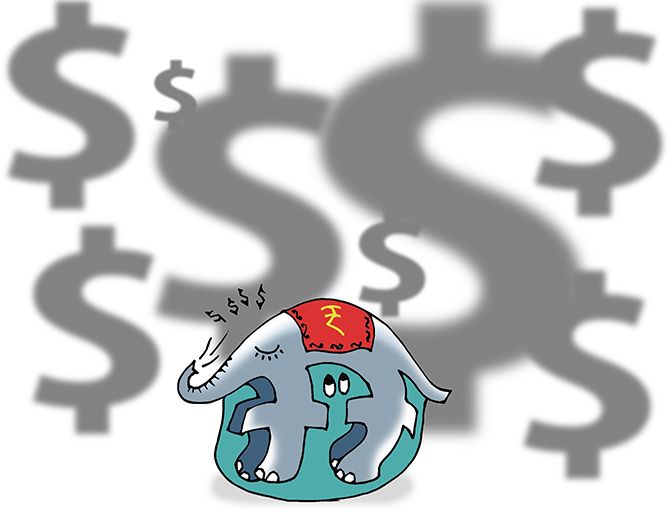Right from the early days of liberalisation, there have been political controversies surrounding several cases that landed on the FIPB table and which, in turn, have often led to court battles.
Illustration: Dominic Xavier/Rediff.com

Clearances through the Foreign Investment Promotion Board (FIPB) have sometimes stoked controversy, but few have got into issues of criminality as has happened in the cases of INX Media and Aircel-Maxis.
These and a few more have landed former finance minister P Chidambaram in the soup.
But right from the early days of liberalisation, there have been political controversies surrounding several cases that landed on the FIPB table and which, in turn, have often led to court battles.
We examine two of the most headline-grabbing ones here.
The most recent was the AirAsia case.
The Malaysia-based airline submitted an application to the FIPB in February 2013 and received approval at a fairly quick pace two months later in April 2013 to begin domestic aviation services in India.
It became a Central Bureau of Investigation case last year.
The investigation agency was tasked to find out if AirAsia was favoured over others.
As part of the investigation, the agency was supposed to examine the role of the FIPB, which meant checking out who were the officers who signed the approvals.
The agency went on to name AirAsia Group chief executive officer Tony Fernandes, the airline and others in its complaint about the allegations that the airline had lobbied with the government officials to get a licence to operate in India.
The FIPB was set up by the Government of India just after liberalisation to provide a one-window route to bring in investment from overseas.
While it remained operational till it was abolished in Budget 2017, its salience dipped as more sectors came under the automatic route.
This meant inward investments from there did not need to come through the FIPB route.
In all these decades, clearances for investment in the civil aviation sector have almost always raised political temperatures.
For instance, while there was no criminal angle, there was controversy over the proposal to sell 24 per cent stake in Naresh Goyal-owned Jet Airways to Etihad Airways.
It was deferred more than once before it was cleared in 2013.
But more than a decade earlier, the most famous of those was the proposal by Tata Group to tie up with Singaore Airlines in 1998 to set up a domestic airline.
The then industry minister Sikander Bhakt told reporters on record that he saw no reason why this project was being blocked, or why there was any opposition to foreign direct investment in the aviation sector.
Yet the day after the minister’s statement, the FIPB decided to defer the proposal and the Tatas withdrew the proposal.












